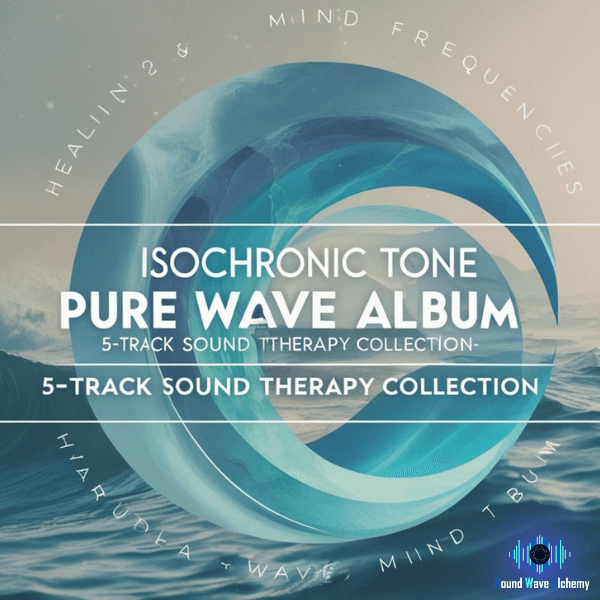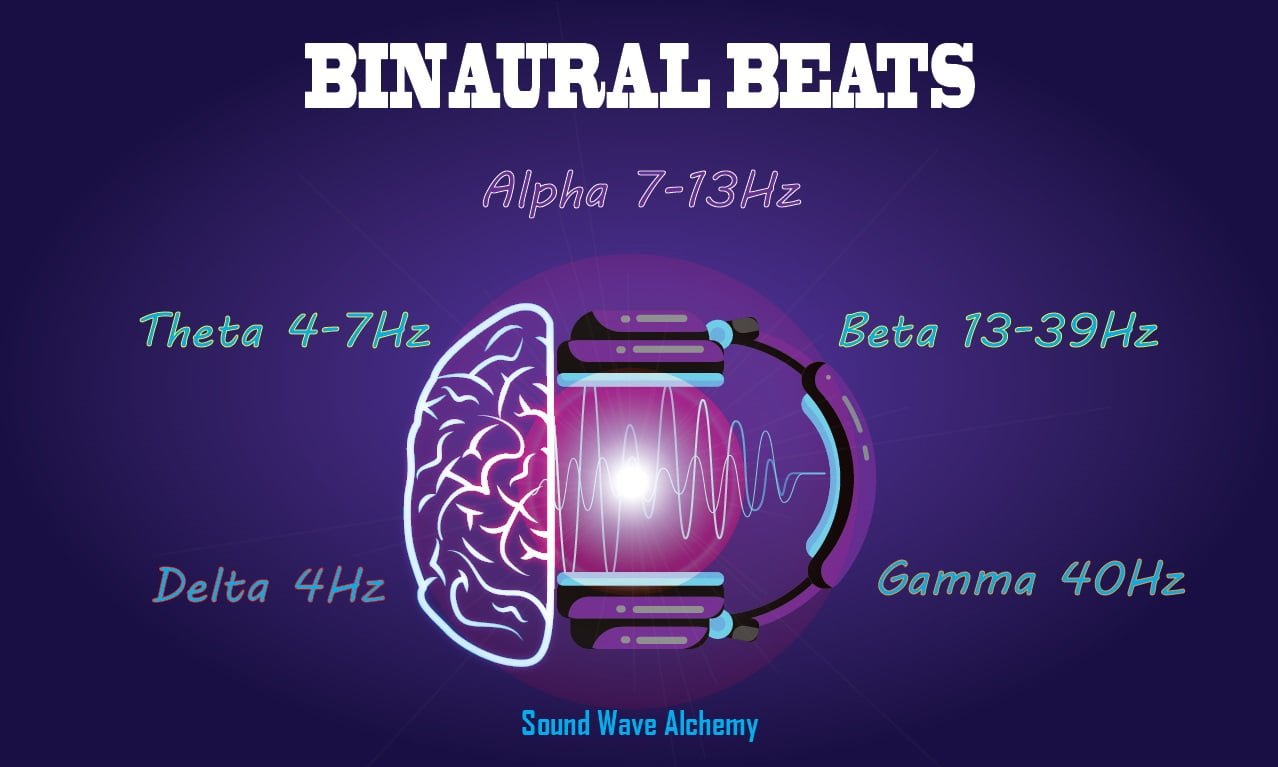Zen Essentials for Binaural Beats
-

-
 Sunrise Alarm Clock & Sound Machine
Sunrise Alarm Clock & Sound Machine
Gentle wake-up, screen-free routines, white noise, smart light.
From $169.99 -
 Sony WH-1000XM6 – Meditation & Travel Headphones
Sony WH-1000XM6 – Meditation & Travel Headphones
Top-tier noise canceling, clarity & comfort. Great for deep focus, meditation, or travel.
$448.00
- Introduction to the Vagus Nerve
- Understanding Theta Waves and Binaural Beats
- The Power of Binaural Beats for Energy and Motivation
- How Binaural Beats Stimulate the Vagus Nerve
- Benefits of Vagus Nerve Stimulation
- Techniques for Listening to Theta Wave Binaural Beats
- Incorporating Binaural Beats into Your Daily Routine
- Research on the Effectiveness of Binaural Beats for Motivation
- Safety Precautions when Using Binaural Beats
- Conclusion: Unlocking the Potential of the Vagus Nerve through Theta Wave Binaural Beats
Introduction to the Vagus Nerve

The vagus nerve is a remarkable structure that plays a crucial role in our overall well-being. As the longest cranial nerve in the human body, it extends from the brainstem to various organs, including the heart, lungs, and digestive system. This extensive network allows the vagus nerve to serve as a vital communication pathway, transmitting information between the brain and the body’s vital functions.
Understanding the importance of the vagus nerve is the first step in unlocking its potential. This nerve is responsible for regulating our parasympathetic nervous system, which is responsible for the “rest and digest” functions of the body. By maintaining a healthy vagus nerve, we can promote better heart rate variability, improve digestion, and even enhance our emotional well-being.

🧘♀️ Binaural Beats for Healing
Brainwave-tuned audio for deep meditation, alignment, and inner calm.
A perfect tool for high-vibe self-healing and focus.
$249.49 $24.00
Understanding Theta Waves and Binaural Beats
Theta waves are a specific type of brainwave pattern that occurs naturally during deep sleep, meditation, and periods of heightened creativity. These low-frequency waves, ranging from 4 to 8 Hz, are associated with a state of deep relaxation and increased intuition. Interestingly, research has shown that theta waves can also have a positive impact on our overall mood and cognitive function.
Binaural beats, on the other hand, are an auditory illusion created when two slightly different frequencies are played in each ear. The brain then perceives a third, “beat” frequency, which can be used to induce specific brainwave patterns, including theta waves. By listening to theta wave binaural beats, we can potentially stimulate the vagus nerve and tap into its many benefits.
The Power of Binaural Beats for Energy and Motivation
Binaural beats have been the subject of increasing scientific interest due to their potential to positively influence our mental and physical well-being. When it comes to energy and motivation, research has shown that listening to binaural beats can have a significant impact.
By inducing theta wave patterns, binaural beats can help promote a state of deep relaxation and focus. This, in turn, can lead to increased feelings of motivation and a boost in overall energy levels. The theta wave state is often associated with enhanced creativity, problem-solving abilities, and even improved mood.
How Binaural Beats Stimulate the Vagus Nerve

The connection between binaural beats and the vagus nerve is a fascinating area of research. Studies have suggested that the theta wave patterns induced by binaural beats may have a direct impact on the vagus nerve’s function.
The vagus nerve is responsible for regulating the parasympathetic nervous system, which controls the body’s “rest and digest” functions [1]. By stimulating the vagus nerve through the use of theta wave binaural beats, we may be able to enhance this regulation, leading to improved heart rate variability, better digestion, and even a reduction in stress and anxiety levels.
Benefits of Vagus Nerve Stimulation
Stimulating the vagus nerve through the use of theta wave binaural beats can unlock a wide range of benefits for our overall health and well-being. Some of the key benefits include:
- Improved Heart Rate Variability (HRV): The vagus nerve plays a crucial role in regulating the heart’s rhythm, and stimulating it can lead to better HRV, which is an indicator of a healthy cardiovascular system.
- Enhanced Digestion: The vagus nerve is closely connected to the digestive system, and by stimulating it, we can potentially improve gut function, reduce inflammation, and promote better nutrient absorption.
- Reduced Stress and Anxiety: The vagus nerve is involved in the body’s stress response, and by activating it through theta wave binaural beats, we may be able to lower cortisol levels and promote a state of relaxation.
- Elevated Mood: The vagus nerve is linked to the production of neurotransmitters like serotonin and dopamine, which are essential for maintaining a positive mood and overall emotional well-being.
- Improved Cognitive Function: Theta wave binaural beats may also have a positive impact on cognitive abilities, such as memory, focus, and problem-solving skills.
Techniques for Listening to Theta Wave Binaural Beats
Incorporating theta wave binaural beats into your daily routine is a straightforward process. Here are some techniques to consider:
- Dedicated Listening Sessions: Set aside 15-30 minutes each day to listen to theta wave binaural beats in a quiet, comfortable environment. This can be done during meditation, while working on creative tasks, or even before bedtime.
- Background Listening: You can also incorporate theta wave binaural beats as background music during various activities, such as work, study, or relaxation. This can help create a calming and focused atmosphere.
- Guided Meditations: Many binaural beat recordings are accompanied by guided meditations, which can further enhance the experience and provide additional benefits for the mind and body.
- Headphone Usage: For the best results, it’s recommended to use high-quality headphones or earbuds when listening to binaural beats, as this ensures that the two different frequencies are accurately perceived by each ear.
Incorporating Binaural Beats into Your Daily Routine

Integrating theta wave binaural beats into your daily routine can be a powerful way to unlock the potential of the vagus nerve and reap the associated benefits. Here are some suggestions:
- Morning Meditation: Start your day with a 15-20 minute meditation session accompanied by theta wave binaural beats to promote a sense of calm and focus.
- Afternoon Boost: During a midday slump, listen to theta wave binaural beats to help re-energize and motivate you.
- Winding Down: In the evening, use theta wave binaural beats to help you relax and prepare for a restful night’s sleep.
- Creative Endeavors: Incorporate theta wave binaural beats while engaging in creative activities, such as writing, painting, or problem-solving, to enhance your focus and inspiration.
- Commute and Errands: If you have a long commute or need to run errands, consider listening to theta wave binaural beats to help you stay calm and centered throughout the day.
Research on the Effectiveness of Binaural Beats for Motivation
The scientific community has been actively investigating the potential benefits of binaural beats, including their impact on motivation and energy levels. A growing body of research has yielded promising results:
- A 2015 study published in the journal Frontiers in Human Neuroscience found that listening to binaural beats in the theta range (4-8 Hz) led to increased feelings of motivation and improved cognitive performance.
- Another study, published in the Journal of the American Medical Association in 2016, demonstrated that binaural beat stimulation could enhance attention, focus, and overall cognitive function.
- A 2019 review article in the journal Neuroscience and Biobehavioral Reviews concluded that binaural beats have the potential to modulate various brain functions, including those related to motivation and energy levels.
These studies, along with ongoing research, suggest that the use of theta wave binaural beats may be a valuable tool for enhancing motivation, energy, and overall cognitive performance.
To unlock the potential of the vagus nerve and experience the benefits of theta wave binaural beats, I encourage you to incorporate this practice into your daily routine. Whether it’s through dedicated listening sessions, background music, or guided meditations, exploring the connection between binaural beats and the vagus nerve can be a transformative journey. For more information on the scientific research supporting the use of binaural beats for vagus nerve stimulation, please visit [link to relevant scientific study].

Brainwave-tuned audio for deep meditation, alignment, and inner calm.
A perfect tool for high-vibe self-healing.
$249.49 $24.00

Pure pulsing tones to re-center your focus and balance your energy field.
Royalty-free for use in personal or healing work.
$149.99 $36.69
Safety Precautions when Using Binaural Beats
While the use of theta wave binaural beats is generally considered safe, it’s important to be mindful of a few precautions:
- Hearing Sensitivity: Some individuals may be more sensitive to the specific frequencies used in binaural beats, so it’s recommended to start with lower volumes and gradually increase the intensity as needed.
- Seizure Disorders: Individuals with a history of seizures or epilepsy should consult with a healthcare professional before using binaural beats, as the specific frequencies may potentially trigger seizures in some cases.
- Pregnancy: Pregnant women should exercise caution when using binaural beats and consult with their healthcare provider for guidance.
- Driving or Operating Machinery: It’s crucial to avoid using binaural beats while engaging in activities that require full attention and focus, such as driving or operating heavy machinery, as the altered state of consciousness may impair your ability to perform these tasks safely.
By being mindful of these precautions, you can safely and effectively incorporate theta wave binaural beats into your wellness routine and unlock the power of the vagus nerve.
Conclusion: Unlocking the Potential of the Vagus Nerve through Theta Wave Binaural Beats
The vagus nerve is a remarkable structure that plays a vital role in our overall health and well-being. By understanding the power of theta wave binaural beats and their potential to stimulate the vagus nerve, we can unlock a wide range of benefits, from improved heart rate variability and better digestion to enhanced cognitive function and elevated mood.
Through consistent practice and the incorporation of theta wave binaural beats into our daily routines, we can harness the transformative power of this ancient practice and unlock the full potential of the vagus nerve. By doing so, we can embark on a journey of self-discovery, improved well-being, and a deeper connection to the mind-body-spirit continuum.
⭐️⭐️⭐️⭐️⭐️ (4.3/5)
Find your calm and comfort — designed for deep relaxation & mindfulness sessions.
Only $189.99
🧘♂️ Get Yours & Relax Now







